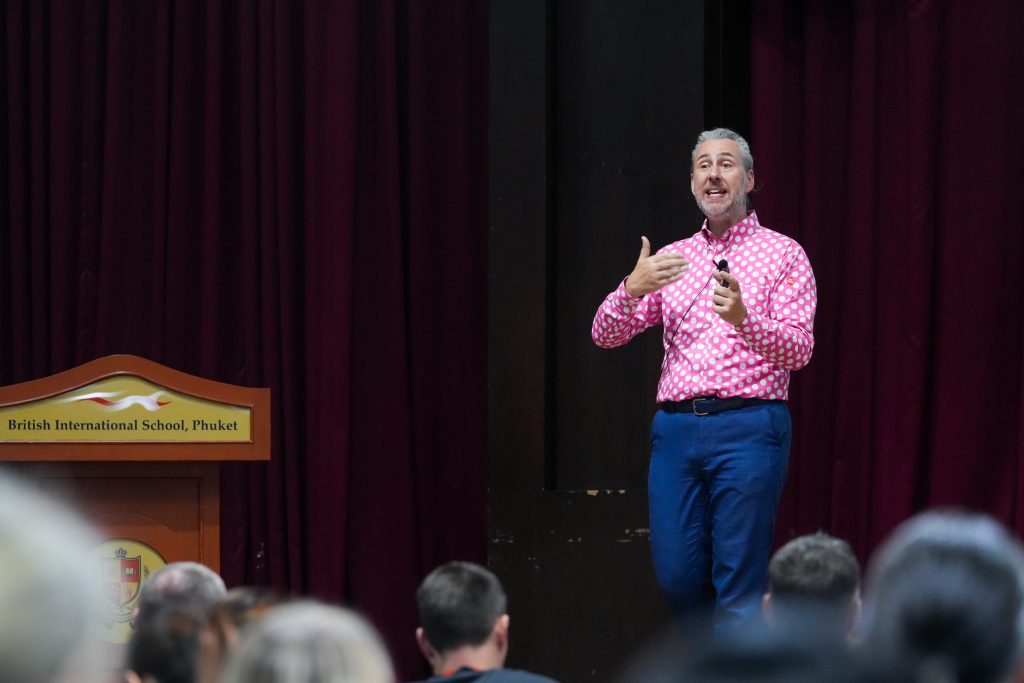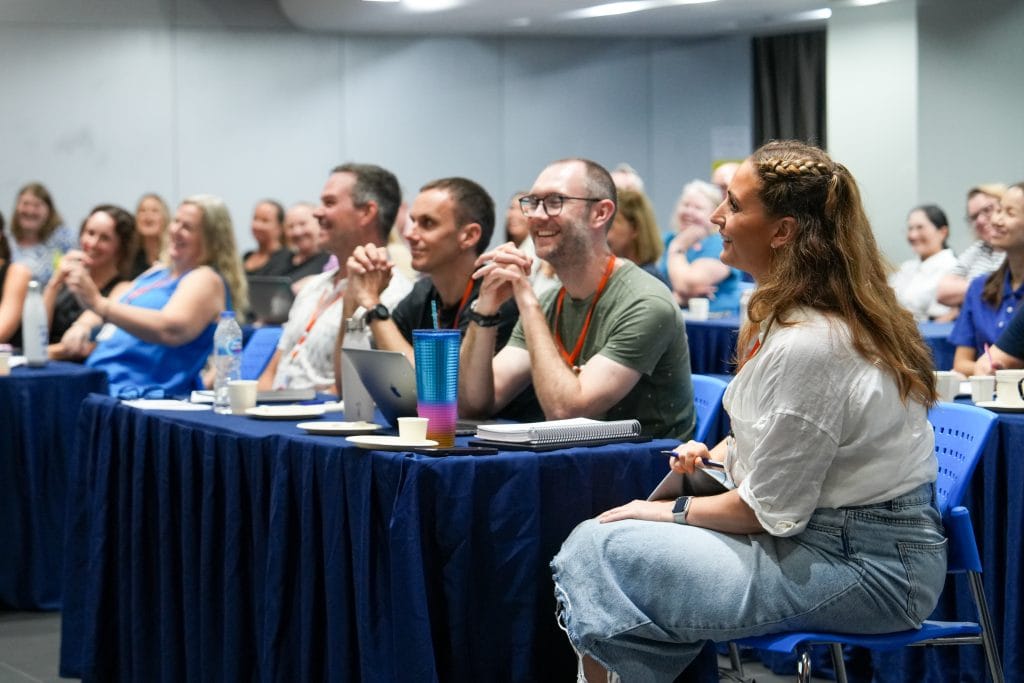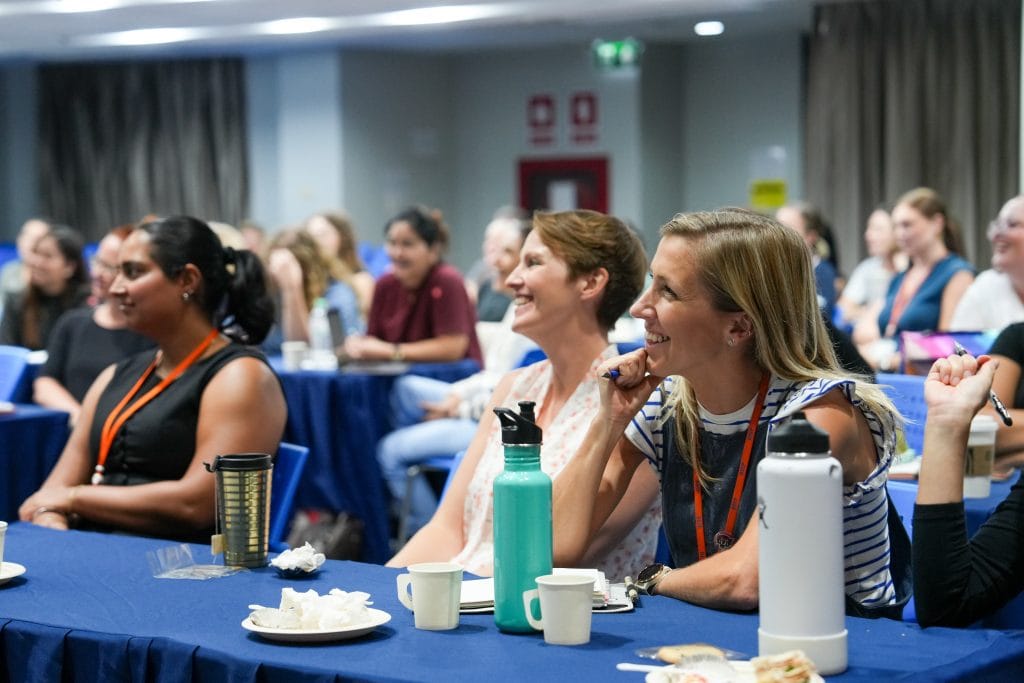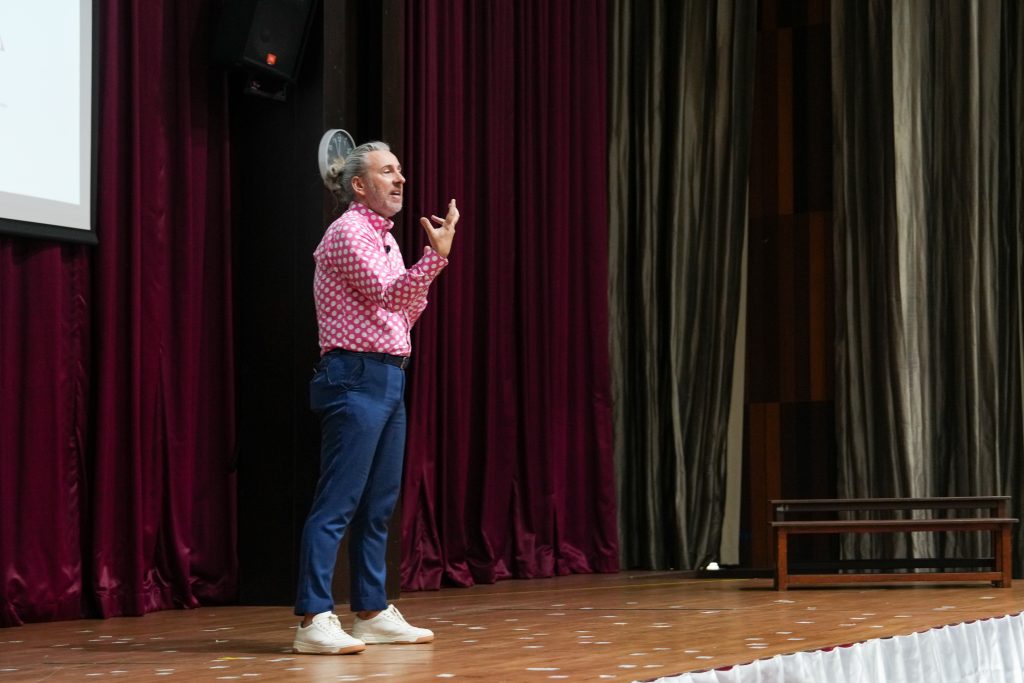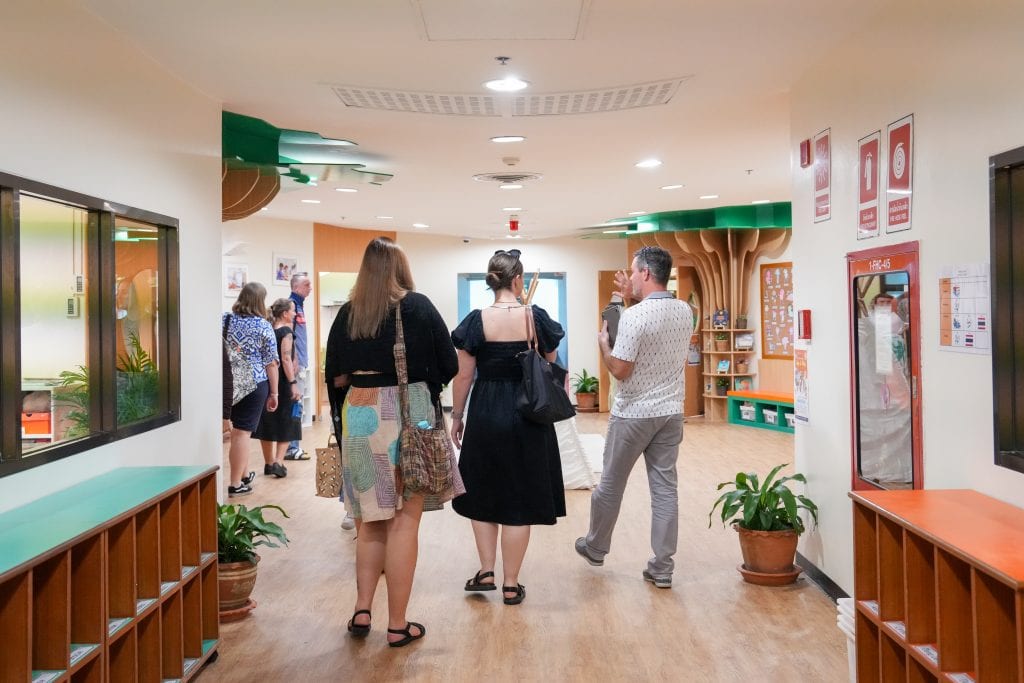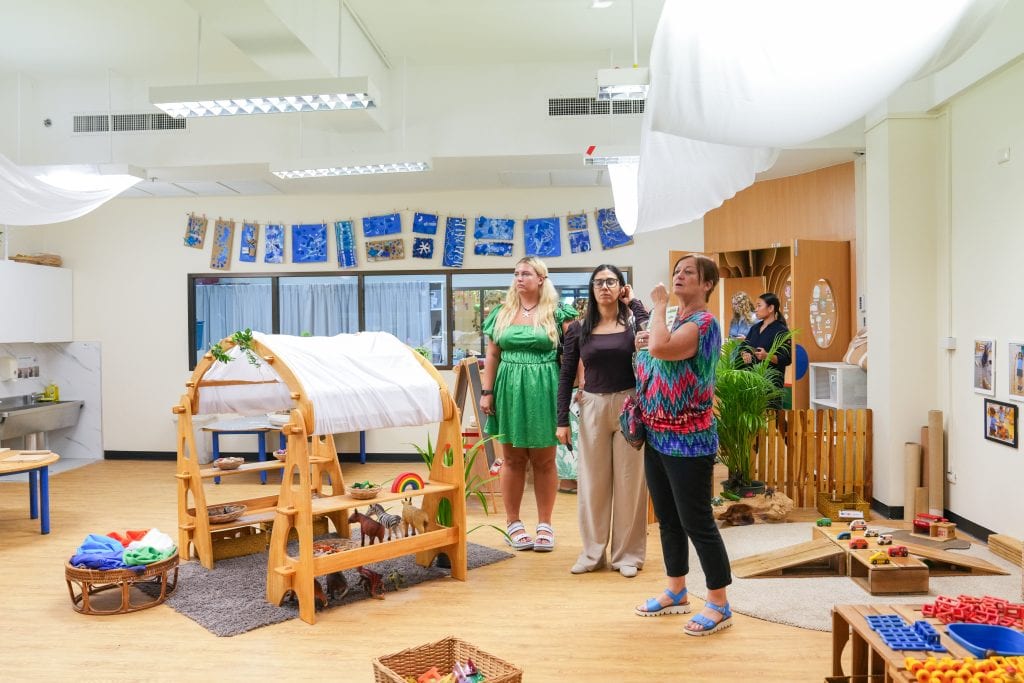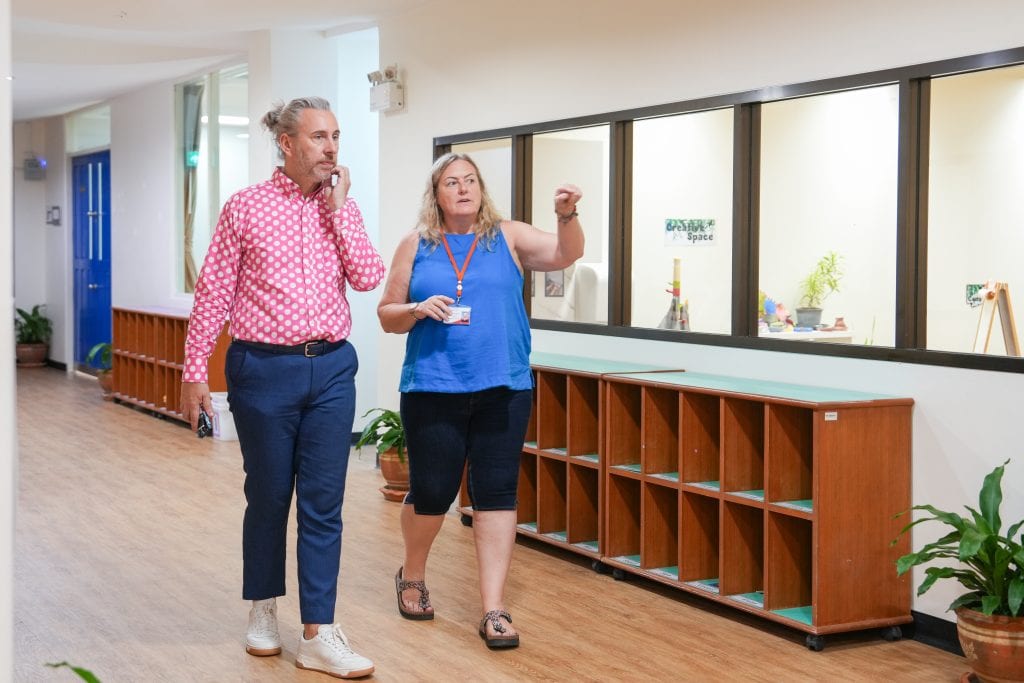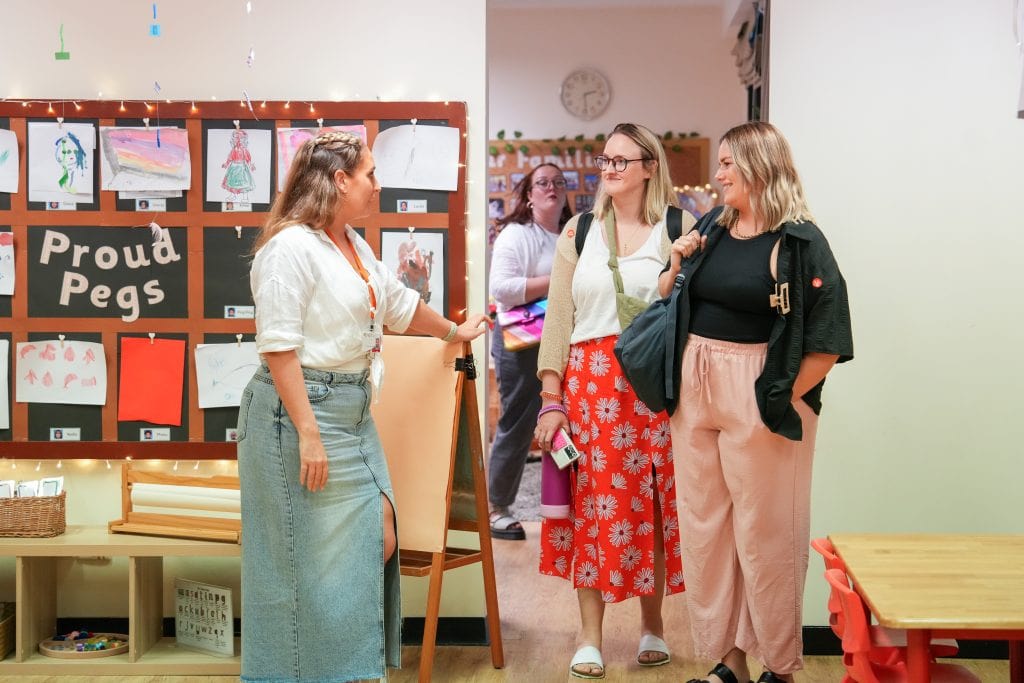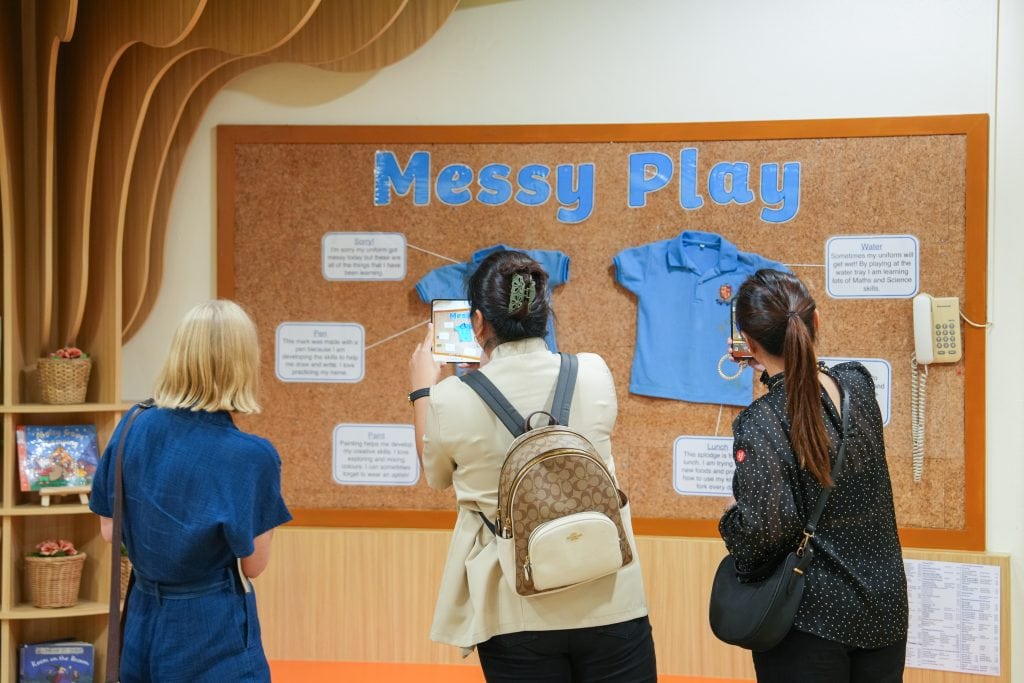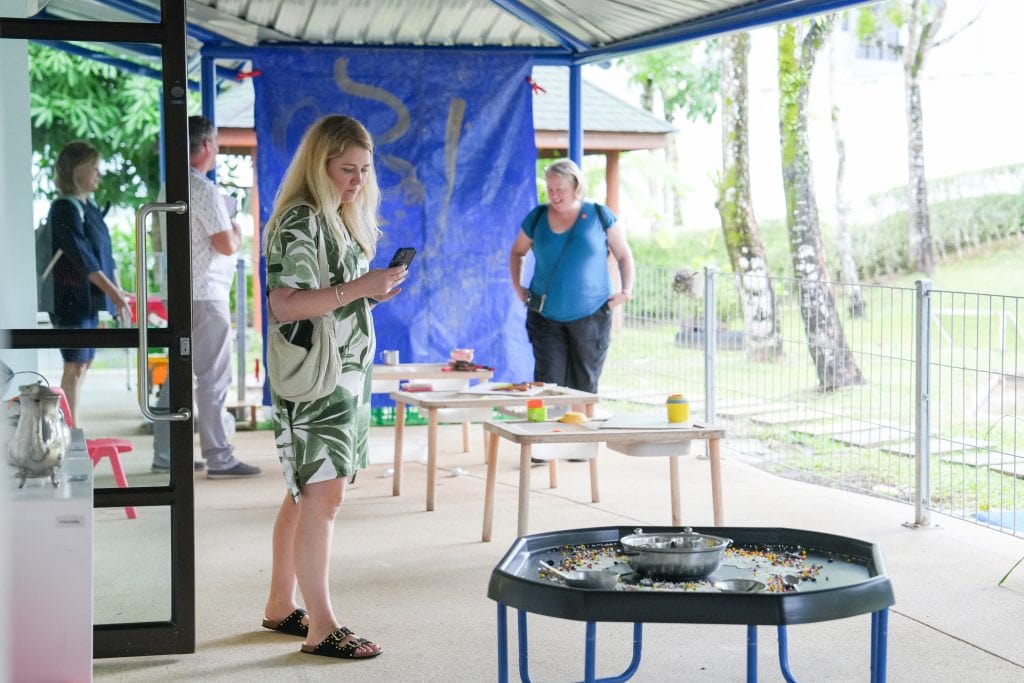| Getting your Trinity Audio player ready... |
Dr Alistair Bryce-Clegg, a renowned international consultant and trainer with over 30 years of experience in Early Years education, recently visited British International School, Phuket. With a career ranging from Reception teacher to Headteacher, and as the author of 28 books, Alistair is dedicated to enhancing children’s learning and development through play. He is also the co-founder of the My First Five Years app, which supports parents and caregivers in understanding early childhood development. Alistair led a workshop at BISP titled “Best Practice in the Early Years.”
Joining the 25 BISP teachers were 43 teachers from other international schools across Asia which provided a rich environment for teacher learning and opportunity to network with other professionals. A central takeaway from the workshop was the often-overlooked significance of play. Many believe that play should be set aside so that “real” learning can begin, yet it is actually through play that children thrive and learn most effectively.
Play is essential for childhood development, well-being, and health. Unfortunately, many misunderstand the term, assuming it lacks academic value, which is far from the truth. Play forms the foundation of the curriculum we follow at BISP—the Early Years Foundation Stage (EYFS)—and supports every facet of a child’s learning journey. Through play, children enhance their language skills, grasp their emotions, and cultivate creativity, social abilities, and intellectual growth.
“I thoroughly enjoyed my day at BISP, meeting such passionate and committed Early Years practitioners. Play is where real learning happens—when we give children the freedom to lead their play, we unlock their creativity, problem-solving, and emotional growth. The simplest, open-ended resources often bring the most powerful learning. It was a pleasure to see how dedicated everyone is to fostering meaningful, play-based learning” – Dr Alistair Bryce-Clegg
In our social media-driven world, both practitioners and parents often feel compelled to engage children in visually impressive activities. However, it’s worth questioning whether these elaborate setups genuinely benefit a child’s learning and development. Alistair pointed out that “the most open-ended resources can be the most effective.” Children need the time and space to direct their own play and discover learning organically. Encouraging children to initiate their own play enhances their learning, as engagement is crucial for effective learning.
Child-led play fosters communication skills and helps children navigate their environment. While most children engage in play naturally, some may require additional support from adults. When adults direct play, they can sometimes inadvertently strip away valuable learning moments. The most impactful learning experiences often occur when children are allowed the freedom to explore, establish their own game rules, solve problems, think critically, make decisions, and learn from mistakes. As Alistair noted, “play is the foundation of deep engagement.” Play promotes essential skills such as negotiation, problem-solving, sharing, and teamwork. It allows children to practise decision-making, move at their own pace, and discover their interests. Unstructured play often results in greater physical activity, contributing to healthier children.
For those interested in learning more about Early Years education, you can visit Dr Alistair Bryce-Clegg’s website. It contains useful information on early childhood development and practices that support young learners. You can explore his work and find helpful resources by visiting ABC Does.
